Sponsor
This session is sponsored by Structured Journalism: Can news be as modular as Lego? – [Unconference]

Structured Journalism is about breaking digital news down into its most fundamental parts and pieces, and then rebuilding it into novel and exciting journalism products. It’s new, it’s powerful and it’s how more and more journalism is being done. From PolitiFact and Homicide Watch to new projects at BBC, The New York Times and the Washington Post, structured journalism promises to take journalism beyond just articles, turning news into digital networks and maybe even reinventing the economics of newsrooms.
This is an informal introduction to structured journalism - what it is, how it works and how you can start doing it in your newsroom as soon as you return from ONA. We’ll cover the basics, review some examples (including the Structured Stories NYC project funded by the ONA Challenge Fund) and discuss why this approach could be so revolutionary for consumers, reporters and newsroom economics. We’ll have lots of time for questions and demos, and no technical skills are required!
If you’ve wondered what structured journalism is all about, or are curious about fundamentally new ways of approaching digital news, then this session is for you. Vote for the Structured Journalism Unconference!
Bill Adair is the Knight Professor of the Practice of Journalism and Public Policy at Duke University. He is the creator of the fact-checking website PolitiFact, which won the Pulitzer Prize for National Reporting in 2009.
At Duke, Bill oversees the Reporters’ Lab, a faculty-student research center that focuses on fact-checking and structured journalism. The Reporters’ Lab won a 2015 ONA Challenge Fund grant for Structured Stories NYC, an experiment in structured journalism.
David Caswell is the founder and developer of the Structured Stories platform. He was previously a director of product management at Yahoo! Inc. and the product lead for Yahoo!’s Content Analysis Platform and Knowledge Graph.
The unconference is a chance for conference attendees to propose conversations on topics we may not have covered elsewhere. Topics were pitched here through the first day of the conference, and voting was held on Friday, September 25. Winning sessions held on Saturday, September 26.
Special thanks to TinyLetter for supporting the unconference, and for ensuring we’ll hear from more voices in the programming.
Speakers
Bill Adair
David Caswell

